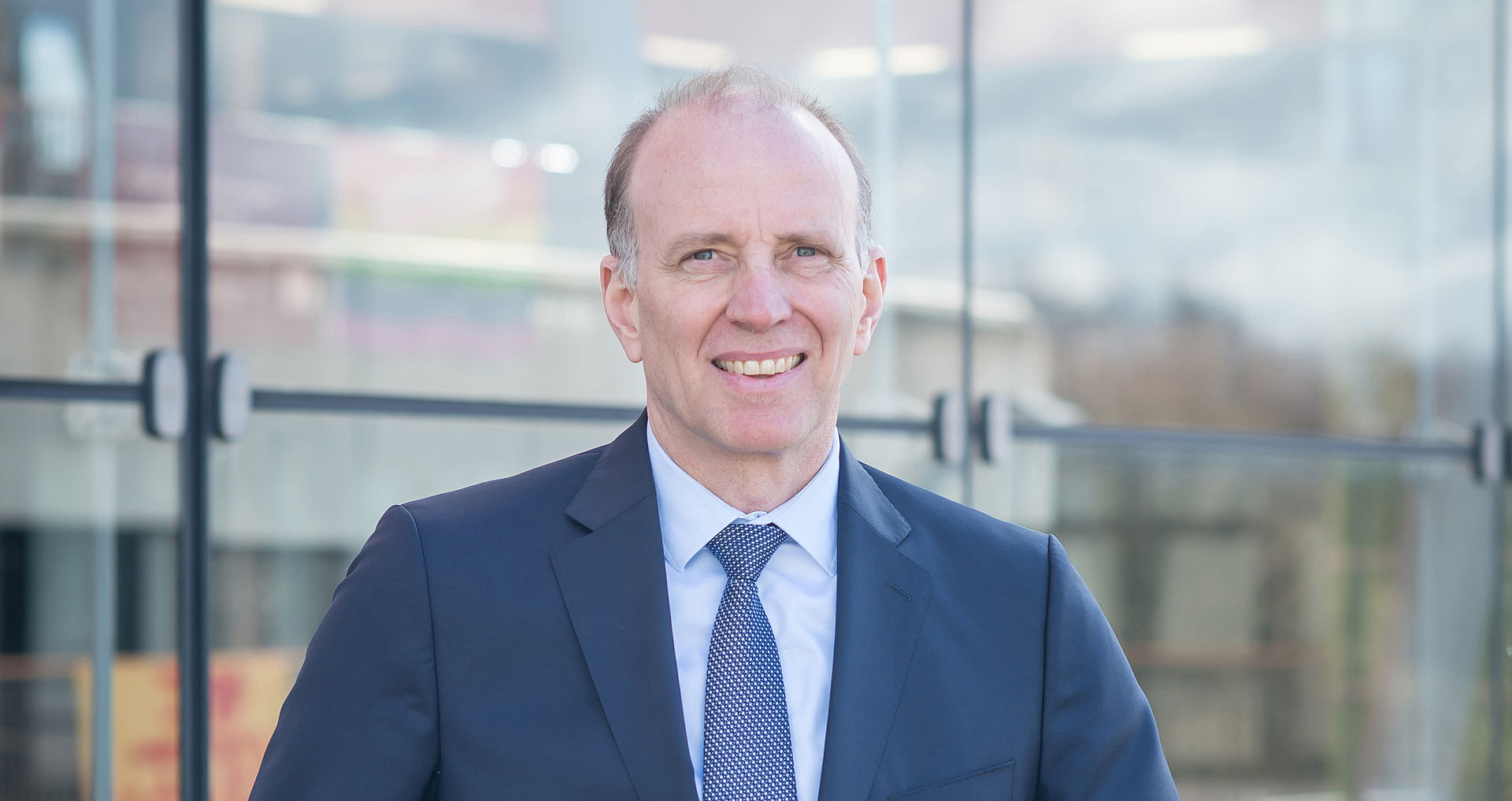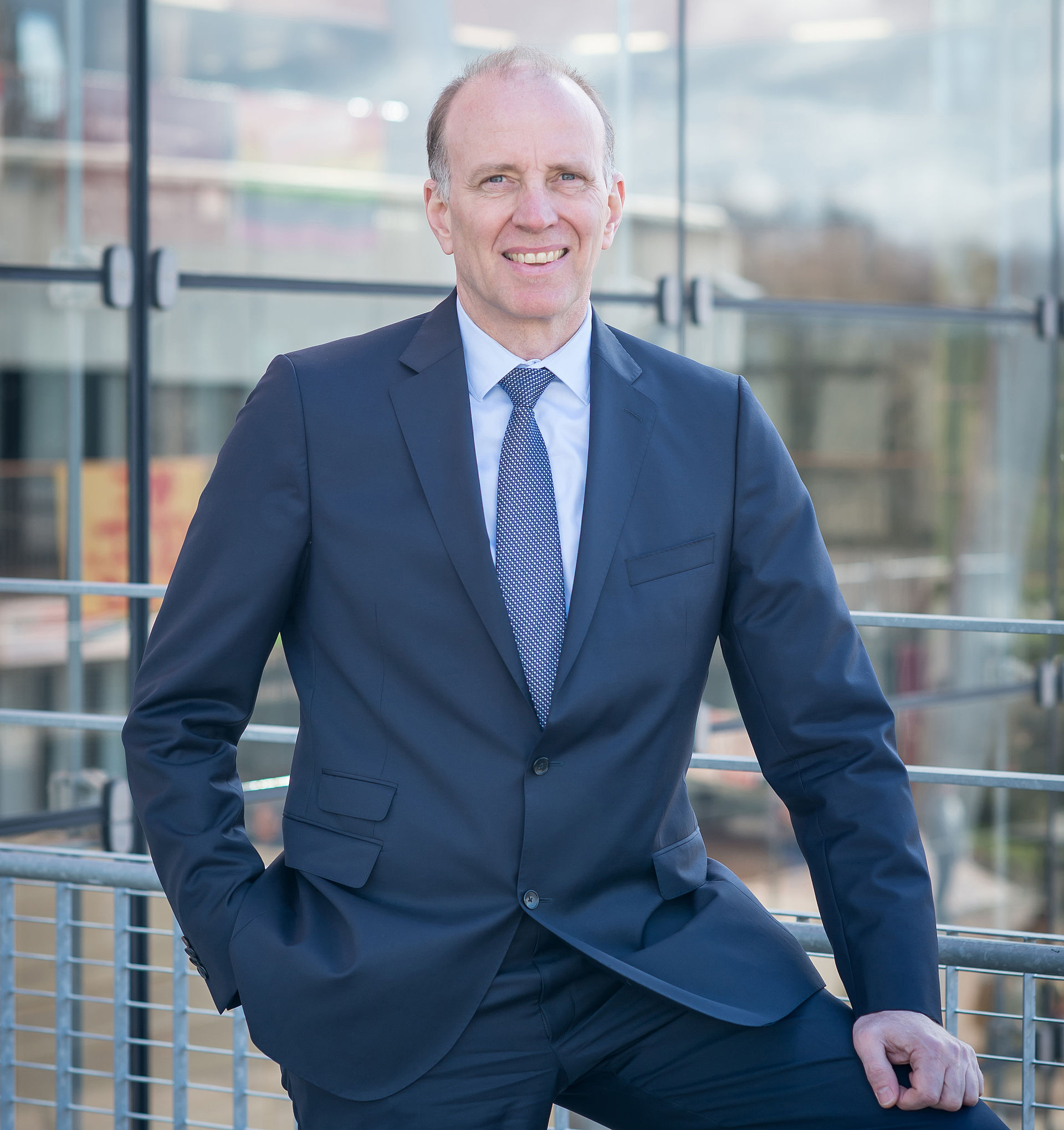November 10, 2021. I have just returned from the International Astronautical Congress IAC, which took place this year in Dubai in the United Arab Emirates. There, more than 6,500 delegates from 110 countries around the world met to share the latest trends and developments in space. It was a fascinating week, not only because of the large number of technical and scientific presentations – I was thrilled to see the dynamism and speed that many countries are showing when it comes to spaceflight. Spaceflight is booming worldwide, and nowhere was that more evident in these weeks than at this industry meeting in the Emirates.
And these days, the enthusiasm for spaceflight in Germany and around the world will increase even further when, after some delay, the Falcon 9 rocket with German astronaut Matthias Maurer on board the Crew Dragon capsule will set off in the direction of the ISS. And the fascination is not only fed by the fact that even some 60 years after the start of human spaceflight, it still is a great adventure to shoot people several hundred kilometres into space. The real breathtaking thing is the launch of the rocket itself: the forces at work when this monster lifts off make every single fiber in the body vibrate. I have felt a sense of majesty at every launch I have had the privilege of watching up close in my life – but not in the sense of haughtiness or pride, but more in the sense of dignity and solemnity. Indeed, I still find it fascinating that mankind has managed to overcome the forces of physics in this way.
Astronauts as influencers
After Matthias Maurer and his crew members arrive on the ISS, they will spend six months not only conducting very significant scientific experiments, but also becoming influencers from space. Under "@astro_matthias," our German astronaut will regularly send tweets from the "Cosmic Kiss" mission to Earth. After all, Nasa and Esa have also long since understood that the importance of the scientific experiments on the ISS often cannot be adequately communicated to the public. Spectacular images from an altitude of more than 400 kilometres attract much more attention – Alexander Gerst led the way with his "Horizons" mission in 2018.
Of course, I think this greater attention for spaceflight is good. I am, after all, a space entrepreneur. But I'm also a resident of this planet – and that's why I also see this kind of necessary marketing for the government-funded ISS missions as an important message to all the peoples of this world. Because, as with Alexander Gerst's many tweets, Matthias Maurer's messages will also show all the people of the world the wounds that climate change and our wasteful use of resources have left on the planet. There could not have been a more appropriate time to draw attention to the Earth's environmental problems with images from the ISS: These days, the World Climate Summit is taking place in Glasgow, Scotland. And from what I've heard about it so far, it's going to be a crucial meeting in the fight against climate change.
Space is one of the key elements in the fight against climate change
Climate change was, of course, also one of the discussion points at the IAC in Dubai. Space, with its technologies, is one of the keys in the fight against climate change. Only from space can the Earth system with all its interactions be understood. Satellites are the basis for this. Around 3,000 of them circle around the Earth in orbits of various altitudes. They perform many useful services that most people, however, hardly associate with an infrastructure in space: The daily weather forecast and navigation on the smartphone run via them. Without data from navigation satellites, chaos would also break out in energy networks or financial markets; they depend on highly precise time signals from space.
Earth observation satellites monitor changes in the Earth and the atmosphere, and the data is then used to improve climate models.
Spaceflight is becoming more global and democratic
Digitalisation and worldwide networking are also ensuring that spaceflight is becoming globalised and democratised. Anyone with a certain amount of money to spend can get into the space business today. Elon Musk and Jeff Bezos are examples of this – admittedly, very exclusive examples. But there are now countless startups around the world that are working on applications derived from space. Digital business models make it possible. And the demand is huge: analyses predict that the market volume of spaceflight activities will increase almost tenfold by 2040 and become a trillion-dollar business.
For decades, all these space services and technologies were the domain of Americans, Russians and Europeans. That, too, is over. The rest of the world has caught up, led by Asia. The space programmes pursued by China and India are extremely ambitious. The Chinese, in particular, are using space as a means to increase their prestige and become a serious competitor to the Americans. However, the IAC in Dubai impressively demonstrated that other regions of the world are also striving mightily for space. The United Arab Emirates, for example, want to land on an asteroid and are sending a probe to Venus – another entered the orbit of Mars this summer – and a mission to the Moon is planned for 2024. The Emiratis are just one of the many players in the race for space. There are now around 100 countries around the world that have set up their own space agencies, most recently the central African nation of Rwanda – which shortly after announced plans to launch a large constellation of satellites into space for broadband Internet.
As a German and a convinced European, all these observations have made me think a bit. Thanks to our engineers, we can still keep up with the best in the world in space technology, and Germany and many ESA countries are among the absolute leaders, especially in satellite technology. But that is no longer the case with rocket technology. Here, companies from the United States are years ahead. It will be very difficult to catch up again. But Europe must also be careful not to fall behind in other fields. The industry is currently undergoing a major shift toward commercialisation. This process is generally described by the term New Space. New Space is full of agile, highly innovative start-ups that are setting up business models with data from space thanks to the possibilities of digitalisation and artificial intelligence. However, the venture capital for this rarely comes from Europe or even Germany.
Space start-ups need more support
So if we are not careful, these young, innovative companies with their highly talented specialists will follow the call of financiers from the USA, China or other emerging regions of the world. It is therefore imperative that we do more to promote start-ups in the space sector. Germany has made a start with its competition to promote microlauncher start-ups; the new ESA Director General Josef Aschbacher has set a clear focus on commercialisation and investment in space start-ups with his Agenda 2025. This is all going in the right direction, but will not be enough to keep up with the dynamic development in the rest of the world.
The opportunity to make the next leap in the space economy has seldom been more opportune than it is right now. Space and its applications will be more important to the functioning of societies and economies in the next decade than ever before. I can't imagine Europe not being among the top players in this historic boom. But to really be at the forefront, politicians in Germany and Europe must position themselves much more clearly on the opportunities associated with space – and explain the opportunities for the national economy and the prosperity that this can bring to societies much more clearly to the public.
There are few industries that are currently experiencing a similar boom and growth forecast as the space sector. In Germany, too, this could give rise to a kind of gold-rush atmosphere in the next few years – hundreds of highly innovative start-ups have been founded in the Federal Republic alone in recent years. Three microlauncher start-ups are working to launch their maiden flight by 2023. And a consortium is in good spirits to realise a spaceport in the North Sea by 2023. If these projects can all be realised, this may create a dynamic from which can give rise to entirely new industrial space clusters. In these projects, space companies naturally work together with the automotive and aerospace industries because they have the longest experience with industrial series production. They are cooperating with materials scientists because every gram counts when it comes to offering the best price for a flight into space. And they are taking advantage of entirely new financing opportunities because the benefit of services from space for the entire national economy has become an indispensable tool for corporate planning.
Personal details:
Born in 1962, Marco Fuchs studied law in Berlin, Hamburg and New York. He worked as an attorney in New York and Frankfurt am Main from 1992 to 1995. In 1995, he joined OHB, the company that his parents had built up. He has been Chief Executive Officer of OHB SE since 2000 and of OHB System AG since 2011. Marco Fuchs is married and has two children.


